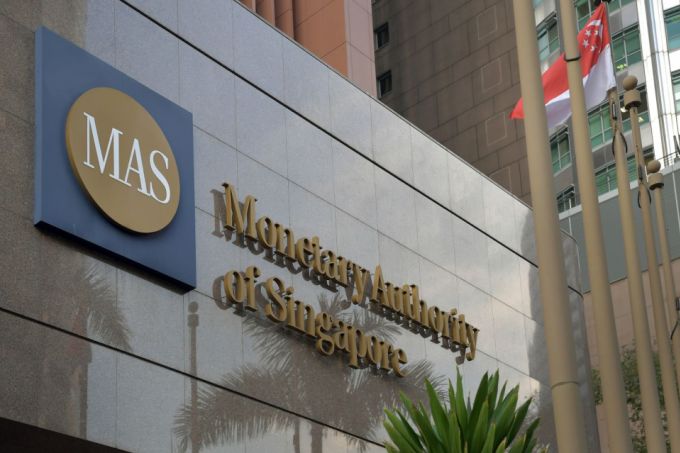Singapore: MAS seen edging toward tightening policy
[SINGAPORE] Singapore’s central bank is widely seen sticking to a neutral stance on Friday, but it may be moving closer to tightening policy as the economy continues to strengthen.
All but one of the 23 economists surveyed by Bloomberg predict the Monetary Authority of Singapore, which uses the exchange rate rather than interest rates as its main tool, will keep its policy stance where it is: seeking no appreciation in the currency against a trading basket.
Less clear is whether the MAS will signal it’s ready to tighten next year. More than half of the economists in the survey expect that forward-looking language used in the previous two policy statements – that the neutral stance is appropriate for an “extended period of time” – will be dropped. Eight predict some tightening at the next scheduled policy decision in April.
“The market is toying with the idea that the MAS may move,” said Adam McCabe, head of Asian fixed income in Singapore at Aberdeen Standard Investments. “At this point in time, there is no aggressive reason to tighten, even inflation is not a problem.”
Singapore’s growth outlook is brightening amid a resurgence in global trade, putting the prospect of policy tightening back on the table. The MAS has been in easing mode since 2015 to help bolster the export-led economy in the face of declining consumer prices.
Prime Minister Lee Hsien Loong said in August that Singapore will probably grow 2.5 per cent this year, which would be the best since 2014.
While inflation has picked up this year, price pressures are uneven, giving the central bank room to hold off on tightening just yet. The domestic economy also remains weak in the face of job cuts and rising debt. Employment contracted in the last two quarters.
Singapore’s recovery is “lopsided and clustered in older sectors of the economy that, on a trend basis, are shrinking,” said Vaninder Singh, a Singapore-based economist at NatWest Markets, part of Royal Bank of Scotland Group Plc.
Core inflation, the central bank’s preferred measure of prices, will remain near the middle of the MAS’s forecast range of 1 per cent to 2 per cent, with diminishing wage pressures, he said.
“Calling for a neutral slope for this week’s decision is easy,” said Singh, who expects the central bank to retain its policy settings through at least April. “What has been trickier for the market and analysts to assess is the forward guidance.” A tightening move would mean the MAS seeks a stronger trade-weighted local dollar. The Singapore dollar’s nominal effective exchange rate is already approaching the highest level it reached this year in July. The currency has strengthened more than 6 per cent against the US dollar this year, among the top performers in the region.
FED HIKES
If the MAS drops its forward-looking language, it would signal a return to a tightening path as soon as in April, according to firms including Macquarie Bank Ltd. and United Overseas Bank Ltd.
The prospect of further tightening by the US Federal Reserve next year may prompt the MAS to “slowly move in that direction,” though that will also depend on the Singapore dollar’s performance against the basket, said Ng Kheng Siang, Asia-Pacific head of fixed income at State Street Global Advisors.
“As of now, there isn’t a strong need for the MAS to alter its monetary policy stance,” Mr Ng, who is based in the city-state, said. “That kind of policy has served the economy well.”
The central bank eased policy twice in 2015 and again in April last year, when it shifted to a zero appreciation stance. Policy makers guide the local dollar against a basket of its counterparts and adjust the pace of appreciation or depreciation by changing the slope, width and center of a currency band.
Chua Hak Bin, a Singapore-based senior economist with Maybank Kim Eng Research – and the only analyst surveyed by Bloomberg who’s predicting a tightening this week – said the MAS has opted for a neutral stance in a downturn or recession, and that’s no longer the economic environment.
“A neutral stance is no longer appropriate, given the strong growth dynamics and the risk that inflation could inch forward going into next year,” Mr Chua said. The Singapore dollar will probably rally more than 0.5 per cent should the MAS act, he said.
BLOOMBERG
Source: http://www.businesstimes.com.sg/government-economy/mas-seen-edging-toward-tightening-policy


 Thailand
Thailand




